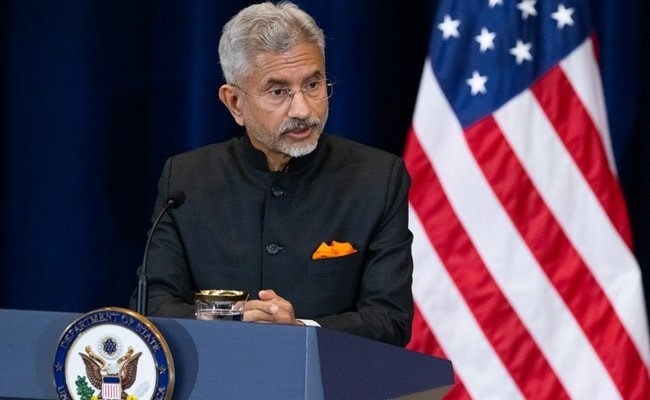| Translate This News In |
|---|
S Jaishankar, India’s External Affairs Minister, stated on Wednesday that India will continue to maintain a relationship with China based on “mutual” sensitivity, respect, and interest.
S Jaishankar made the remarks in response to a question about Beijing’s consistent statements about how things are “okay” between the two countries.
“What I’ve said, in my opinion, represents an accurate policy assessment of the state of our relations. We will continue to work toward a relationship with China that is based on mutual sensitivity, mutual respect, and mutual interest “During a press conference, S Jaishankar made a strong statement.
S Jaishankar, who is in the United States to attend the recently concluded annual United Nations General Assembly, is now in Washington, where he met with his US counterpart, Antony Blinken, and other top Biden Administration officials.
Meanwhile, China’s ambassador to India, Sun Weidong, stated that the situation on the India-China border is “overall stable,” and that the two countries have transitioned from the “emergency response” that followed the June 2020 clash in Galwan Valley to “normalised management and control.”
A few days prior, S. Jaishankar attacked China in his remarks to the United Nations Security Council (UNSC) session on Ukraine without specifically mentioning it.
S. Jaishankar commented on Beijing’s move to prevent the listing of terrorists in this way: “Fighting impunity is essential to the greater effort to establish justice and peace. On this issue, the Security Council must make clear and unequivocal statements. Politics should never serve as a fig leaf for avoiding responsibility. Neither to promote impunity, in fact. Unfortunately, when it comes to sanctioning some of the most feared terrorists in the world, we have recently witnessed this in this very chamber. This Council needs to think carefully about the signals we are sending if heinous crimes committed in broad daylight go unpunished. If we want to be believed, there must be consistency.”
A day following his UNSC remark, S. Jaishankar and his Chinese colleague Foreign Minister Wang Yi had a brief run-in when photos were taken at a BRICS summit in New York last week. There was an awkward “unease.” The two foreign ministers did not have any private meetings.
At the recent Shanghai Cooperation Organization conference, Prime Minister Modi and Chinese President Xi Jinping had a similarly unpleasant encounter while posing for a group shot; however, there were no words between the two leaders.
After more than two dozen rounds of diplomatic and military discussions, India and China have removed their frontline soldiers from the two sides of Pangong Lake, Gogra, and Hot Springs. Other places of tension, such as Demchok and Depsang, haven’t progressed at all, though.
After the stalemate in eastern Ladakh, India has continued to insist that maintaining peace along the Line of Actual Control was essential for the growth of bilateral relations and that the condition of the border will determine the status of relations.


















